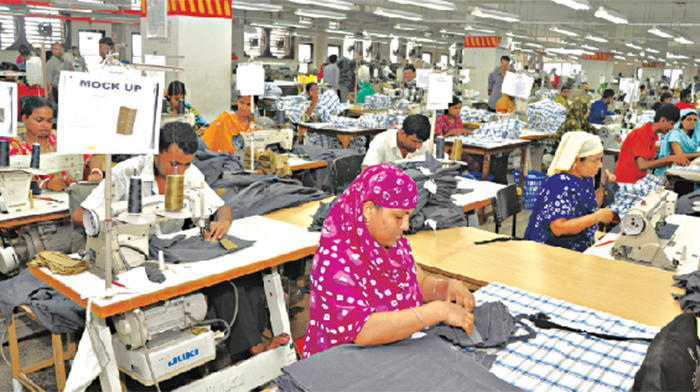The government and the local industry should work together to lead a transition to a better managed and better regulated garment sector that remains competitive over a long term, suggests a recent study.
The study, conducted by the Center for Business and Human Rights at New York University Stern School of Business (NYU Stern), said enhancing the dignity of work and the sustainability of the garment sector in Bangladesh will require more than foreign solutions.
Terming the BGMEA a ‘powerful political and economic entity’ in Bangladesh, the research submission said, “This is a moment for it (BGMEA) to lead to ensure the sustainability of what has been the country’s most profitable export industry.
The solutions, as suggested in the research, include building the capacity and role of the government in oversight of the RMG sector, quickly making land available for industrial zones, as well as investigating and prosecuting corruption to enhance the investment climate for infrastructure projects.
“These areas are critical for long-term sustainability of the RMG sector, and they cannot be negotiated by outsiders,” Sarah Labowitz, lead researcher of the project, told UNB on Saturday.
Labowitz, now in Dhaka, said the government should respond to the demand from workers and civil society for a stronger system of compensation through the courts, and protect freedom of association rights as newly registered trade unions build their capacity.
“The trade associations will have to lead their members to accept changes that will likely impose additional responsibilities on them – increased regulations, greater public oversight, and strategies to relocate and even close some factories,” she added.
Labowitz, also co-director of the Center, said they stand ready to work with local and global businesses, policymakers, workers’ organisations, and other experts to chart a sustainable future course.
The first 20 years of the garment industry have helped lift millions out of extreme poverty in Bangladesh the researchers think business also can be a force to ensure that the next two decades are brighter for Bangladesh’s workers.
The Center for Business and Human Rights at NYU Stern has urged a more open conversation about the nature of business relationships in the supply chain and their effect on working conditions and respect for workers’ rights.
Labowitz, and Dr Dorothee Baumann-Pauly, a professor and author based in Switzerland, are currently preparing a report on issues in the RMG sector.
This spring, they will publish a detailed report on the situation in Bangladesh and will convene a second meeting in Dhaka that will bring together buyers, suppliers, worker organisations, governments, and international organisations.
The report says it is critically important that the government assumes much more significant oversight duties in the garment sector and devotes the resources and personnel to make its oversight effective. “The real reform will also require global brands and the retailers to reexamine their souring strategies.”
Over the last six months, the Center has interviewed dozens of people from all aspects of the RMG sector in Bangladesh, the United States, and Europe.
The researchers spoke with representatives of the government of Bangladesh, workers, factory owners, the BGMEA, brands and retailers, government officials, trade unions, international organizations, civil society groups, academics, and other experts.
The fundamental reform, according to NYU Stern’s written submission to the US Senate Committee on Foreign Relations, which is part of larger project focused on business relationships and working conditions in the readymade garment sector, is needed in three key areas.
These are the sourcing strategies of global brands and retailers, oversight of the garment sector by the government of Bangladesh, and investments in development to address infrastructure failings that contribute to the cycle of factory disasters.
It said reforming the supply chain will require significant investments in three key areas – supply chain management, government oversight, and infrastructure development.
Source: UNBConnect










